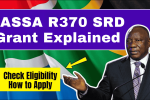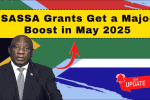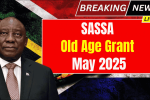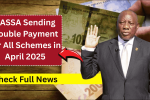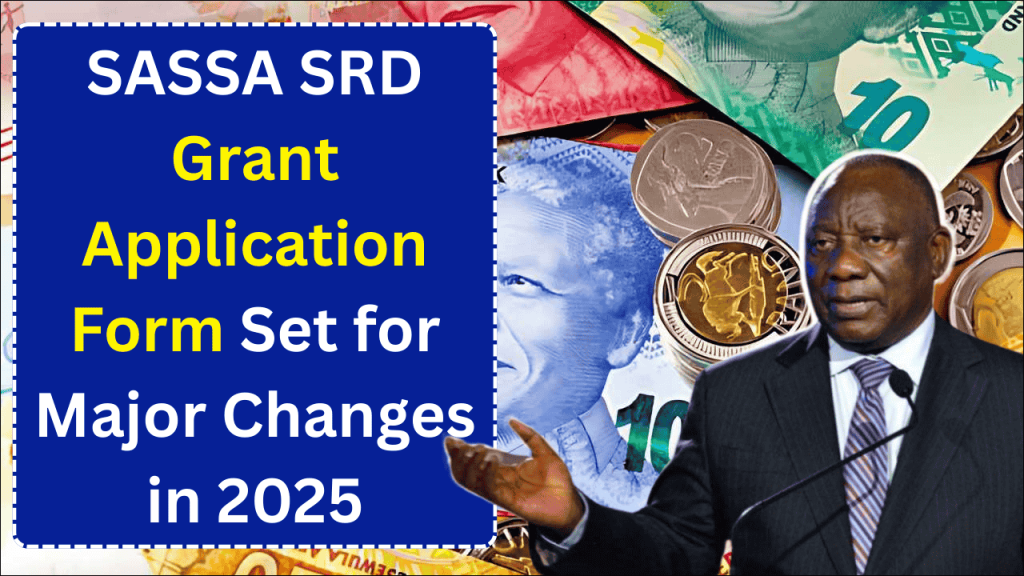
The Department of Social Development (DSD) has introduced a significant proposal to overhaul the application process for the Social Relief of Distress (SRD) grant in South Africa. The proposed changes aim to simplify the application procedure by removing income-related questions that have been a persistent obstacle for many eligible applicants. This reform comes in response to years of criticism from civil society organizations, legal experts, and grant applicants who have argued that the current system is unnecessarily complex and restrictive.
Background: The Evolution of the SRD Grant
The R370 SRD grant, which began as a temporary COVID-19 relief measure in 2020, has become an essential lifeline for millions of South Africans facing economic hardship. With the country’s unemployment rate remaining high and many households living below the poverty line, the grant has transformed from an emergency response into a critical component of South Africa’s social security framework.
However, the application and eligibility verification processes have been criticized for being overly restrictive, with many genuinely needy applicants being rejected due to confusing income-related questions and strict interpretation of financial support.
Court Challenge That Prompted Reform
In January 2025, following legal action by advocacy organizations including the Institute for Economic Justice and the #PayTheGrants campaign, the High Court ruled that several aspects of the current SRD regulations were unconstitutional. The court found that the existing income assessment methodology unfairly excluded vulnerable citizens and ordered the department to revise the regulations.
Social Development Minister Lindiwe Zulu acknowledged the ruling’s impact: “We have heard the concerns of our citizens and the courts. Our goal is to ensure that social assistance reaches those who truly need it while maintaining the integrity of the system.”
For information about current regulations and services, citizens can visit the Department of Social Development official website.
Key Changes in the Proposed Application System
The proposed revisions focus primarily on simplifying the application process by eliminating complicated questions about income sources that have resulted in high rejection rates. Under the current system, applicants must declare various forms of financial support, including gifts or occasional help from family members, which are then counted as disqualifying income.
The table below highlights the key differences between the current and proposed application systems:
| Element | Current Application Process | Proposed Application Process |
|---|---|---|
| Income Questions | Multiple detailed questions about sources of support | Removed entirely from application form |
| Income Verification | Self-reporting plus bank checks | Automated monthly bank account verification only |
| Family Support | Casual help from family counted as income | No longer directly asked about or reported |
| Application Length | Longer form with multiple sections | Streamlined form focusing on basic information |
| Rejection Rate | High due to income question confusion | Expected to decrease significantly |
| Required Information | Name, ID, contact details, income details | Name, ID, contact details, banking consent |
According to the draft proposal, the new application will focus on collecting only essential information such as:
- Full name and ID number
- Contact details
- Consent to access banking information for verification
- Basic demographic information
Applicants can find the current SRD grant information and apply through the SASSA SRD Portal.
Monthly Income Verification Process
While income-related questions may be removed from the initial application, the SRD grant will remain means-tested. The income threshold of R625 per month will still apply, but verification will shift entirely to an automated system of monthly bank account checks rather than relying on self-reported information.
| Verification Aspect | Current System | Proposed System |
|---|---|---|
| Frequency | Monthly | Monthly (unchanged) |
| Income Threshold | R625 per month | R625 per month (unchanged) |
| Verification Method | Self-reporting and bank data | Bank data only |
| Temporary Income | Often leads to permanent disqualification | May only affect one month’s payment |
| Re-application | Required after rejection | Automatic monthly reassessment |
Under the new system, if an applicant’s bank account shows income exceeding R625 in a particular month, they may not receive the grant for that period. However, eligibility would be automatically reassessed the following month, allowing for quicker reinstatement if financial circumstances change.
“This approach recognizes the irregular nature of income in the informal economy,” explained SASSA Executive Director Themba Matlou. “Someone might earn above the threshold in one month but have no income the next. The new system is designed to be more responsive to these fluctuations.”
Benefits for Different Stakeholder Groups
The proposed changes are expected to produce various benefits for different groups involved in the SRD grant system:
For Applicants:
- Simplified application process with fewer opportunities for disqualifying errors
- Reduced confusion about what constitutes “income”
- Less stigma associated with receiving occasional family support
- Quicker processing times
- Lower likelihood of rejection for technical reasons
For SASSA Administration:
- Streamlined verification process
- Reduced administrative burden from processing complex applications
- Fewer appeals and reconsideration requests
- More efficient allocation of resources
- Better alignment with digital government initiatives
For Civil Society:
- Increased transparency in the application process
- Greater inclusion of truly vulnerable populations
- Alignment with constitutional obligations for social security
- Reduced need for advocacy intervention in individual cases
For information about appeals and reconsideration processes, applicants can visit the SASSA Appeals and Reconsideration Page.
Public Participation in the Reform Process
The Department of Social Development has emphasized the importance of public input in finalizing these changes. Citizens have until April 14, 2025, to submit their comments on the draft regulations before they are finalized.
| Participation Method | Details |
|---|---|
| Website Submission | Available on the DSD website |
| Email Comments | Send to [email protected] |
| Physical Submission | DSD offices nationwide |
| Public Hearings | Scheduled in major centers |
| Deadline | April 14, 2025 |
“Public participation is not just a procedural requirement—it’s essential for creating a system that truly works for those it aims to serve,” said DSD spokesperson Lumka Oliphant. “We particularly encourage current and former SRD applicants to share their experiences and suggestions.”
To participate in the public comment process, citizens should visit the DSD Public Consultations Page.
Implementation Timeline
If approved following the public consultation process, the new application system is expected to be implemented according to the following timeline:
| Phase | Timeline | Activities |
|---|---|---|
| Public Consultation | Until April 14, 2025 | Gathering feedback from the public |
| Review of Comments | April-May 2025 | Analysis of public input |
| Final Regulations | June 2025 | Publication of finalized regulations |
| System Development | June-July 2025 | Technical development of new application platform |
| Staff Training | July-August 2025 | Preparation of SASSA personnel |
| Pilot Implementation | August 2025 | Initial testing in selected regions |
| Full Implementation | September 2025 | Nationwide rollout of new application system |
This phased approach is designed to ensure a smooth transition and minimize disruption to current grant recipients.
Expert Perspectives on the Proposed Changes
Social policy experts have generally welcomed the proposed changes while noting areas for potential improvement.
Dr. Nomsa Mtshali, social security researcher at the University of Cape Town, commented: “Removing income questions from the application form is a significant improvement that addresses one of the major barriers to access. However, the continued reliance on banking verification may still exclude the most vulnerable—those without bank accounts or who operate entirely in the cash economy.”
Economic analyst Thabo Modise added: “The R625 threshold remains problematically low—well below even the food poverty line. While simplifying the application process is important, the grant amount and income threshold should also be revised to reflect economic realities.”
Addressing Potential Concerns
The Department has acknowledged several potential concerns about the new system and outlined measures to address them:
Banking Access
For applicants without bank accounts, alternative payment methods will continue to be available, including mobile money transfers and collection at South African Post Office branches.
Fraud Prevention
To maintain system integrity, SASSA will enhance its fraud detection capabilities using advanced data analytics to identify suspicious patterns without creating barriers for legitimate applicants.
System Reliability
The technical infrastructure supporting the new application system will be upgraded to handle increased traffic and ensure consistent availability.
For information about alternative payment methods, applicants can visit the SASSA Payment Options Page.
Conclusion: A Step Toward Greater Inclusion
The proposed changes to the SRD grant application represent a significant shift toward a more inclusive social security system in South Africa. By removing complicated income questions and focusing on streamlined monthly verification, the new approach aims to reach more truly vulnerable citizens while maintaining necessary accountability measures.
As South Africa continues to grapple with high unemployment and persistent poverty, reforms to the SRD grant system could play a crucial role in providing essential support to those most in need. The success of these changes will ultimately depend on effective implementation, ongoing monitoring, and willingness to make further adjustments as necessary.
For those currently receiving or applying for the SRD grant, it’s important to:
- Stay informed about the upcoming changes
- Participate in the public consultation process if possible
- Continue applying through the current system until notified otherwise
- Ensure that banking information is accurate and up to date
The latest updates and information about the SRD grant and proposed changes can be found on the SASSA News and Updates Page.

Isabell Johnson is a passionate writer known for captivating stories that blend imagination and reality. Inspired by travel, history, and everyday moments, She crafts narratives that resonate deeply with readers.
